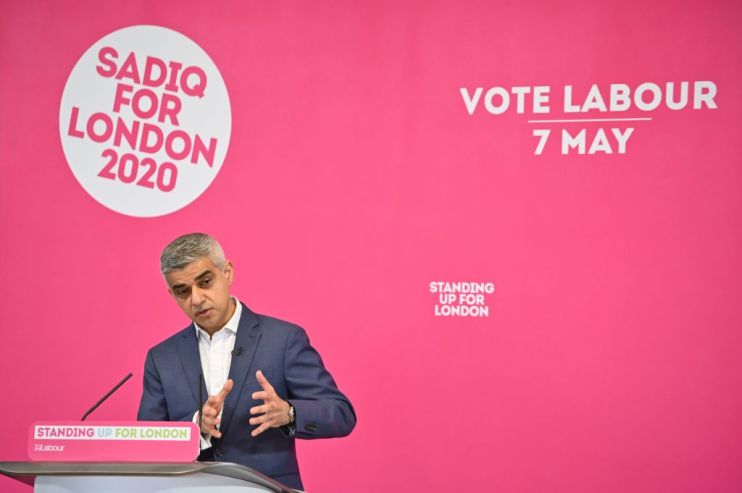Sadiq Khan’s real opponent in the London mayoral election is Boris Johnson

Just days into the formal mayoral election campaign and Sadiq Khan has already shown why he is arguably Labour’s most successful politician since Tony Blair.
The mayor of London launched his re-election campaign last week by labelling the contest as a “referendum on rent control”, demanding central government grants him the power to cap rents in the capital.
At first glance it seems like a strange platform to build a mayoral campaign around.
Instead of focussing on the areas City Hall actually controls – police, fire, transport and housing – Khan has decided to pick an unwinnable fight with a newly elected government.
However, after taking a step back the strategy reveals itself.
By putting rent controls at the heart of the campaign, he has made the election a battle between himself and Boris Johnson, instead of his mayoral rivals.
Khan will position himself deftly above the mayoral race and instead engineer a face-off with the Prime Minister, leaving the other candidates to squabble among themselves.
This will make life difficult for the other contenders, who already suffer from low profiles.
Conservative opponent Shaun Bailey has struggled to cut through, despite having 18 months to increase his profile across London.
The ex-social worker has put a “tough on crime” agenda at the heart of his electoral bid, but he’s struggled to energise the race for City Hall.
Independent Rory Stewart is well-known among political diehards, but it’s doubtful the former Tory elicits much more than an unknowing shrug from the average London voter. He’s working hard to change that, but even those who do recognise him, perhaps unfairly, sometimes see him as an outsider to London.
Liberal Democrat candidate Siobhan Benita and Green candidate Sian Berry, meanwhile, are languishing on single figures in the latest polling and have little chance of getting near the incumbent mayor even via a surge in second-preference votes.
Indeed, Khan will hope his rent control gambit will ensure that none of the candidates get much space in the race, as he instead goes after Downing Street’s Brexiteer-in-chief.
Even the language he has been using points to this tactic. He never mentions Bailey by name but only as “the Tory candidate” or “Boris Johnson’s Tory candidate”. Stewart is dismissed as “the unofficial Tory candidate”.
He also consistently labels the election a “two horse race” between himself and Bailey.
Taking on Westminster has the additional advantage of moving the dial away from some of his own policy failures in office.
Khan has notched up some tangible achievements in his term, particularly his Ultra Low Emissions Zone (Ulez), which has demonstrably improved air quality.
He’s also been visible in times of crises, such as the multiple terrorist attacks inflicted on Londoners over the past four years.
But his record is far from untouchable.
There has been a deeply troubling rise in violent crime during his term and Transport for London’s (TfL) debt has spiralled to £11bn.
His proxy fight with Johnson over devolution could provide the perfect smokescreen and provide an easy answer when pressed by opponents on his record.
It will also allow him to build on a tactic he has brandished consistently while in office – blaming a lack of central government funding when attacked on his record.
This is hardly new territory for Britain’s non-Westminster politicos.
It echoes Nicola Sturgeon’s brand of grievance politics, where she has campaigned in Scottish elections on the issue of independence, steering clear of failing schools and crumbling hospitals.
By shaping a narrative around fighting Westminster elites over the issue, instead of improving the country’s delivery of public services, the SNP has turned into a formidable electoral force.
It’s also a throwback to the infamous “dead cat” strategy favoured by veteran Tory campaign mastermind Sir Lynton Crosby.
Crosby in the past advised his charges to introduce an ostensibly random and emotive issue into public debate to distract people from more pressing concerns.
But while Khan’s electoral strategy may come from other political tribes, he’ll no doubt add his own unique spin to the 2020 mayoral race.
His proxy war with Johnson can ensure he pits himself as a liberal challenger to a Tory government unpopular with many Londoners having bagged just a quarter of London constituencies in the 2019 election.
The next two months could even act as a dress rehearsal to a future where he faces Johnson weekly at the Westminster dispatch box. He wouldn’t be the first Mayor of London to make the leap, after all.